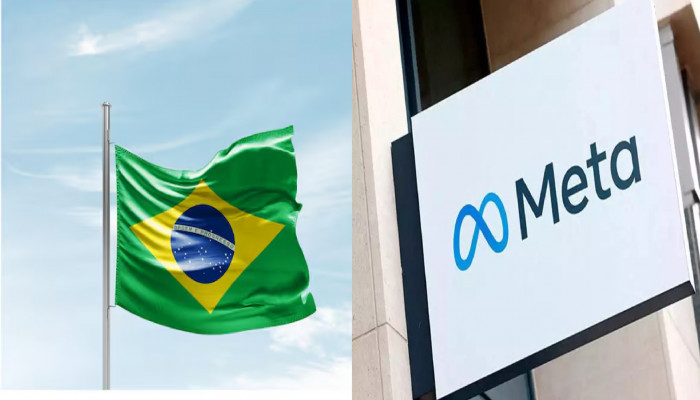Brazil gives Meta 72-hour ultimatum over fact-checking practices
- In Reports
- 12:41 PM, Jan 11, 2025
- Myind Staff
Brazil's federal government sent a formal notice to Meta on Thursday, asking for an explanation of how it handles fact-checking to tackle hate speech and false information on its platforms, according to the Anadolu News Agency.
The Attorney General's Office in Brazil gave Meta, the company that owns Facebook, Instagram, and WhatsApp, 72 hours to provide an explanation for its decision to end its data verification program earlier this week, according to Anadolu News Agency. The government said, "Brazil has strict legislation to protect children and adolescents, vulnerable populations, and the business environment, and we will not allow these networks to turn the environment into digital carnage or barbarism," according to a release cited by Anadolu News Agency.
The notice also demanded that a distorted video, uploaded on Thursday be taken down as it purportedly showed comments made by Fernando Haddad, Brazil's finance minister, about a proposed tax on pets and pregnant animals. Artificial intelligence (AI) produced the video, which was reported for disseminating false information. "The post, manipulated through artificial intelligence, contains fraudulent information and attributes to the minister statements that never existed," the notice added as quoted by Anadolu News Agency.
This week, Meta declared that it would switch out its conventional fact-checking process with a "community notes" feature, similar to X's. According to Anadolu News Agency, the Attorney General's Office said, "In light of the changes announced in Meta's policy, it is essential to emphasise the company's need to promote and protect fundamental rights in accordance with infra-constitutional legislation and the 1988 Constitution." The Brazilian government is taking this move as part of larger initiatives to make social media platforms responsible for disseminating harmful content and misinformation. In the past, TikTok and X have been the target of legal action by Brazilian authorities, which resulted in temporary service restrictions throughout the nation.







Comments